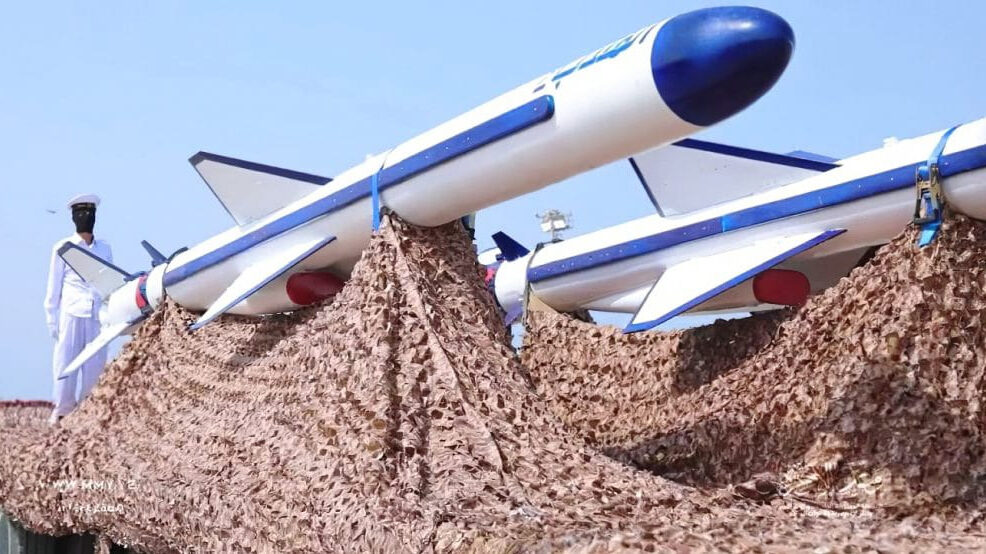Detailed Analysis: Why Arabs Lose Wars?
This video based by article is a personal account of U.S. Army Colonel Norvell DeAtkine's experience in dealing with Arab militaries for over 40 years.
This video provides an in-depth analysis of the performance of Arabic-speaking armies in the modern era, examining their struggles and challenges across various historical conflicts. It begins by exploring how Egyptian regular forces faced difficulties against Yemeni irregulars in the 1960s, a period marked by intense military strategy shifts in the Middle East. Similarly, Syrians managed to assert control in Lebanon during the mid-1970s, but only through the use of overwhelming weaponry and numbers, rather than tactical brilliance.
One of the most notable examples of ineffectiveness came from the Iraqis during the 1980s when they were pitted against an Iranian military deeply affected by revolutionary turmoil. Despite the disarray in Iran, the Iraqis failed to secure a decisive victory and could not win a three-decade-long war against the Kurds. The Arab military performance on both sides of the 1990 Kuwait war was similarly underwhelming, highlighting the mediocre combat history of the region's forces, especially when compared to the more formidable Allied Forces and Axis Powers of World War II.
This video seeks to uncover why this unimpressive record persists, delving into a myriad of factors—economic, ideological, and technical—that have historically hampered Arab armies. Yet, perhaps the most critical factor is cultural, encompassing certain societal attributes that inhibit these forces from producing an effective military presence on the battlefield. The insights you will hear are grounded in the personal experiences of Norville B. De Atkin, who spent nearly three decades in the Middle East as a U.S. military attaché and security assistance officer. Through his lens, we gain an understanding of how military tactics are developed and implemented—or, as often is the case, how they fall short—due to deeply ingrained cultural practices.
It's a well-established truth in military history that an army fights as it is trained. Atkin's firsthand observations of Arab military training reveal much about how these forces approach modern warfare and why they frequently struggle to meet the demands of strategic warfare. Despite nearly 25 years passing since his initial assessments, it appears that little has changed in the effectiveness of these armies, especially when compared to other global forces.
The video also critiques the problematic nature of incorporating culture into strategic assessments. Historically, this approach has led to wild distortions, as seen with the U.S. Army in the 1930s, which misjudged the Japanese national character, leading to incorrect assumptions about their technological capabilities. Hitler's underestimation of the United States as a "mongrel society" similarly backfired, showing the dangers of relying too heavily on cultural stereotypes in warfare. These examples underscore the risk of making assumptions about military abilities based on cultural attributes, which often leads to overconfidence or, conversely, underestimation of an adversary's capabilities.
The video also touches on the evolution of military subculture over time, noting how past performances can lead to erroneous conclusions about future conflicts. The dismal French performance in the 1870 Franco-Prussian War misled the German high command into overestimating the French Army's capabilities during World War I. Conversely, Israeli generals underestimated the Egyptian Army in 1973, based on their lackluster performance in the 1967 war. Such examples illustrate how combat history can be a double-edged sword, influencing strategic decisions in both positive and negative ways.
Furthermore, the video explores how cultural factors—such as the highly centralized command structures in Arab militaries—stifle initiative and flexibility. This rigid hierarchy often leads to a lack of combined arms operations, where cooperation between different military branches, such as naval battles and air warfare, is critical for success.
In Western forces like the U.S. military, NCOs play a vital role in bridging the gap between officers and enlisted soldiers, fostering a sense of unit cohesion and military innovation. However, in many Arabic-speaking armies, NCOs are either absent or non-functional, leading to a breakdown in discipline and effectiveness, particularly in the stress of combat. This lack of a professional NCO corps further exacerbates the challenges these armies face in executing military tactics and maintaining military history.
Detailed Analysis: Why Arabs Lose Wars?
This video based by article is a personal account of U.S. Army Colonel Norvell DeAtkine's experience in dealing with Arab militaries for over 40 years.
This video provides an in-depth analysis of the performance of Arabic-speaking armies in the modern era, examining their struggles and challenges across various historical conflicts. It begins by exploring how Egyptian regular forces faced difficulties against Yemeni irregulars in the 1960s, a period marked by intense military strategy shifts in the Middle East. Similarly, Syrians managed to assert control in Lebanon during the mid-1970s, but only through the use of overwhelming weaponry and numbers, rather than tactical brilliance.
One of the most notable examples of ineffectiveness came from the Iraqis during the 1980s when they were pitted against an Iranian military deeply affected by revolutionary turmoil. Despite the disarray in Iran, the Iraqis failed to secure a decisive victory and could not win a three-decade-long war against the Kurds. The Arab military performance on both sides of the 1990 Kuwait war was similarly underwhelming, highlighting the mediocre combat history of the region's forces, especially when compared to the more formidable Allied Forces and Axis Powers of World War II.
This video seeks to uncover why this unimpressive record persists, delving into a myriad of factors—economic, ideological, and technical—that have historically hampered Arab armies. Yet, perhaps the most critical factor is cultural, encompassing certain societal attributes that inhibit these forces from producing an effective military presence on the battlefield. The insights you will hear are grounded in the personal experiences of Norville B. De Atkin, who spent nearly three decades in the Middle East as a U.S. military attaché and security assistance officer. Through his lens, we gain an understanding of how military tactics are developed and implemented—or, as often is the case, how they fall short—due to deeply ingrained cultural practices.
It's a well-established truth in military history that an army fights as it is trained. Atkin's firsthand observations of Arab military training reveal much about how these forces approach modern warfare and why they frequently struggle to meet the demands of strategic warfare. Despite nearly 25 years passing since his initial assessments, it appears that little has changed in the effectiveness of these armies, especially when compared to other global forces.
The video also critiques the problematic nature of incorporating culture into strategic assessments. Historically, this approach has led to wild distortions, as seen with the U.S. Army in the 1930s, which misjudged the Japanese national character, leading to incorrect assumptions about their technological capabilities. Hitler's underestimation of the United States as a "mongrel society" similarly backfired, showing the dangers of relying too heavily on cultural stereotypes in warfare. These examples underscore the risk of making assumptions about military abilities based on cultural attributes, which often leads to overconfidence or, conversely, underestimation of an adversary's capabilities.
The video also touches on the evolution of military subculture over time, noting how past performances can lead to erroneous conclusions about future conflicts. The dismal French performance in the 1870 Franco-Prussian War misled the German high command into overestimating the French Army's capabilities during World War I. Conversely, Israeli generals underestimated the Egyptian Army in 1973, based on their lackluster performance in the 1967 war. Such examples illustrate how combat history can be a double-edged sword, influencing strategic decisions in both positive and negative ways.
Furthermore, the video explores how cultural factors—such as the highly centralized command structures in Arab militaries—stifle initiative and flexibility. This rigid hierarchy often leads to a lack of combined arms operations, where cooperation between different military branches, such as naval battles and air warfare, is critical for success.
In Western forces like the U.S. military, NCOs play a vital role in bridging the gap between officers and enlisted soldiers, fostering a sense of unit cohesion and military innovation. However, in many Arabic-speaking armies, NCOs are either absent or non-functional, leading to a breakdown in discipline and effectiveness, particularly in the stress of combat. This lack of a professional NCO corps further exacerbates the challenges these armies face in executing military tactics and maintaining military history.











